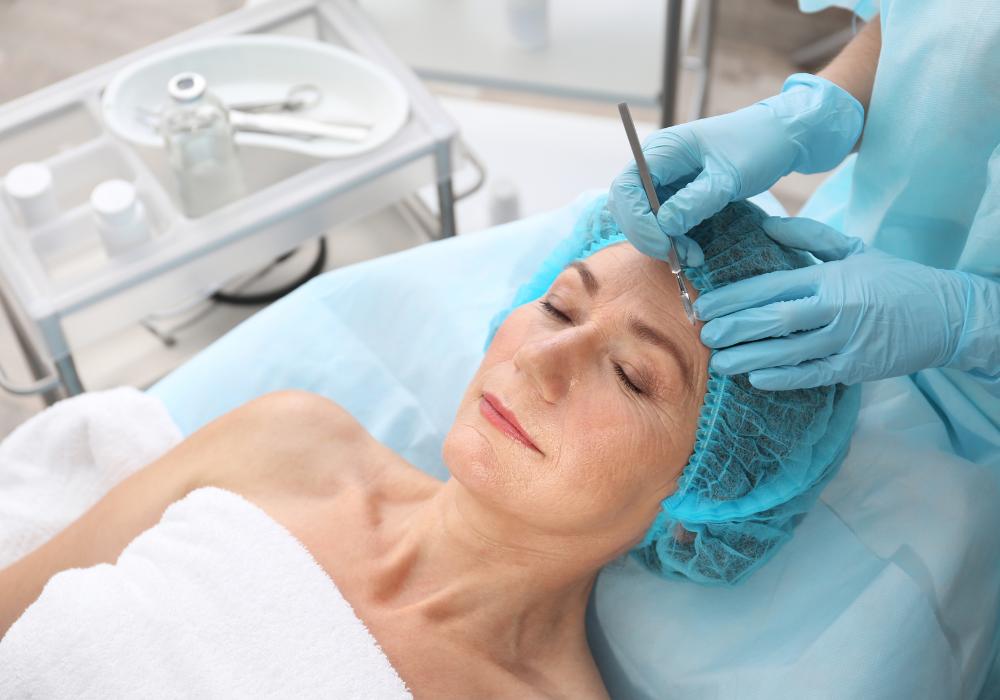Cosmetic surgery isn’t just about changing how you look—it’s about feeling more confident in your own skin. From enhancing your features to addressing areas you’ve always felt self-conscious about, it can be a deeply personal decision. But it’s not one to take lightly.
Whether you’re considering a nose job, tummy tuck, or something else entirely, here’s what you should know before scheduling that first consultation.
What Cosmetic Surgery Really Is (And Isn’t)
Cosmetic surgery refers to elective procedures designed to enhance your appearance. Unlike reconstructive surgery, which addresses medical conditions or injuries, cosmetic treatments are usually optional and focused on aesthetics.
Some common procedures include:
- Facelifts – Tighten sagging skin and smooth deep wrinkles.
- Rhinoplasty – Reshape the nose to improve appearance or breathing.
- Breast Augmentation – Enhance size or restore shape using implants.
- Liposuction – Remove stubborn fat from targeted areas.
- Tummy Tucks – Firm and flatten the abdominal area.
But here’s the truth: cosmetic surgery won’t turn you into someone else. As Dr. Rod J. Rohrich, former president of the American Society of Plastic Surgeons, puts it, the goal is “to improve your appearance and boost your self-confidence—not to transform you into someone you’re not.”
Are You Doing This for You?
This is the most important question to ask yourself.
Are you hoping to look like a celebrity you follow on Instagram? Or is there something you’ve quietly wanted to change for years—something that truly affects how you feel?
When I considered rhinoplasty, it wasn’t on a whim. I’d disliked the bump on my nose since my teens. I took a year to think it through, spoke with professionals, and realised my decision was rooted in self-confidence—not pleasing others.
Plastic surgeon Dr. Julius Few says the best candidates are those who are healthy, emotionally stable, and motivated by a desire to improve their self-image—not external pressure.
If you’re unsure, explore non-surgical alternatives first. Fat-freezing treatments, for example, offer body contouring without surgery. Clinics like Beautiful Body Clinics provide a less invasive way to tone and reshape your body.
Finding the Right Surgeon (It Matters More Than You Think)
Not all surgeons are equal. Choosing a board-certified plastic surgeon should be non-negotiable. Certification means your surgeon has completed extensive training, follows ethical standards, and has passed rigorous exams.
Here are questions you must ask:
- Are you board certified in plastic surgery?
- How often do you perform this specific procedure?
- Can I see before-and-after photos of your patients?
- What are the risks and complications?
- What does recovery typically look like?
Dr. Malcolm Roth, a leader in the field, stresses: “Do your homework. A skilled surgeon can make all the difference in your safety and satisfaction.”
Managing Expectations: It’s Not About Perfection
Cosmetic surgery isn’t magic—it won’t erase all signs of ageing or make you look 20 years younger overnight. But it can offer subtle, meaningful improvements when your expectations are grounded in reality.
Discuss your goals with your surgeon and understand the likely outcomes. According to The Annals of Plastic Surgery, most patients experience improvements in self-esteem and quality of life—but unrealistic expectations are the leading cause of dissatisfaction.
Yes, There Are Risks
Like all surgeries, cosmetic procedures carry potential risks—both physical and emotional. Some of the most common include:
- Infection or scarring
- Reaction to anaesthesia
- Asymmetry or results not matching expectations
You can reduce risks by:
- Choosing a highly experienced surgeon
- Following pre- and post-op instructions
- Disclosing all medications and medical history
The Aesthetic Surgery Journal warns that smoking, obesity, and underlying health conditions can increase complications—so transparency with your provider is key.
Budgeting for Surgery
Cosmetic procedures can be expensive—and they’re rarely covered by insurance.
Make sure you’re fully aware of:
- Surgeon fees
- Anaesthesia costs
- Facility charges
- Post-surgery care and medications
Some clinics offer financing plans or partner with medical loan providers. Personally, when I planned for a tummy tuck, I saved for over a year and explored financing options to avoid stressing my day-to-day budget.
Getting Ready: Before and After
Your surgeon will give you a list of things to do before surgery—these may include stopping certain medications, avoiding alcohol, and arranging for post-op help at home.
Recovery varies, but even “minor” surgeries can require a few days to a few weeks. Plan for rest and limit social plans during that time.
During recovery, small comforts—like wearing your favourite scent—can help. I wore a warm, oud-based fragrance that reminded me of calm and confidence. It’s amazing how scent can support emotional healing too.
Don’t Forget the Mental Side
Cosmetic surgery isn’t just physical—it can have emotional highs and lows. Having a good support system helps you stay grounded and positive during healing.
Studies in The Annals of Plastic Surgery show that many people see lasting boosts in body image and confidence after surgery—but only when their reasons for surgery are authentic and their expectations realistic.
What About Social Media Influence?
Let’s be honest—many cosmetic surgery decisions today are shaped by Instagram, filters, and influencer culture. While social platforms can be educational, they also promote unrealistic beauty standards.
Before you make a decision, remind yourself that most online images are curated, edited, or filtered. Instead of copying someone else’s look, work with your surgeon to enhance your own features.
Final Takeaway: Do It for the Right Reasons
Cosmetic surgery can be a meaningful step toward feeling more confident and empowered—but it’s not something to rush.
Take your time. Research. Reflect on your goals. Talk to trusted professionals and loved ones. And remember what Dr. Lara Devgan says: “It’s not a magic wand—but it can be a powerful tool for enhancing your natural beauty.”
When you make your decision from a place of self-love—not pressure or perfection—you’re already one step closer to your best self.

